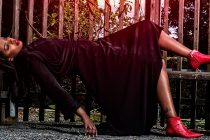by ERICK TAYLOR WOODBY
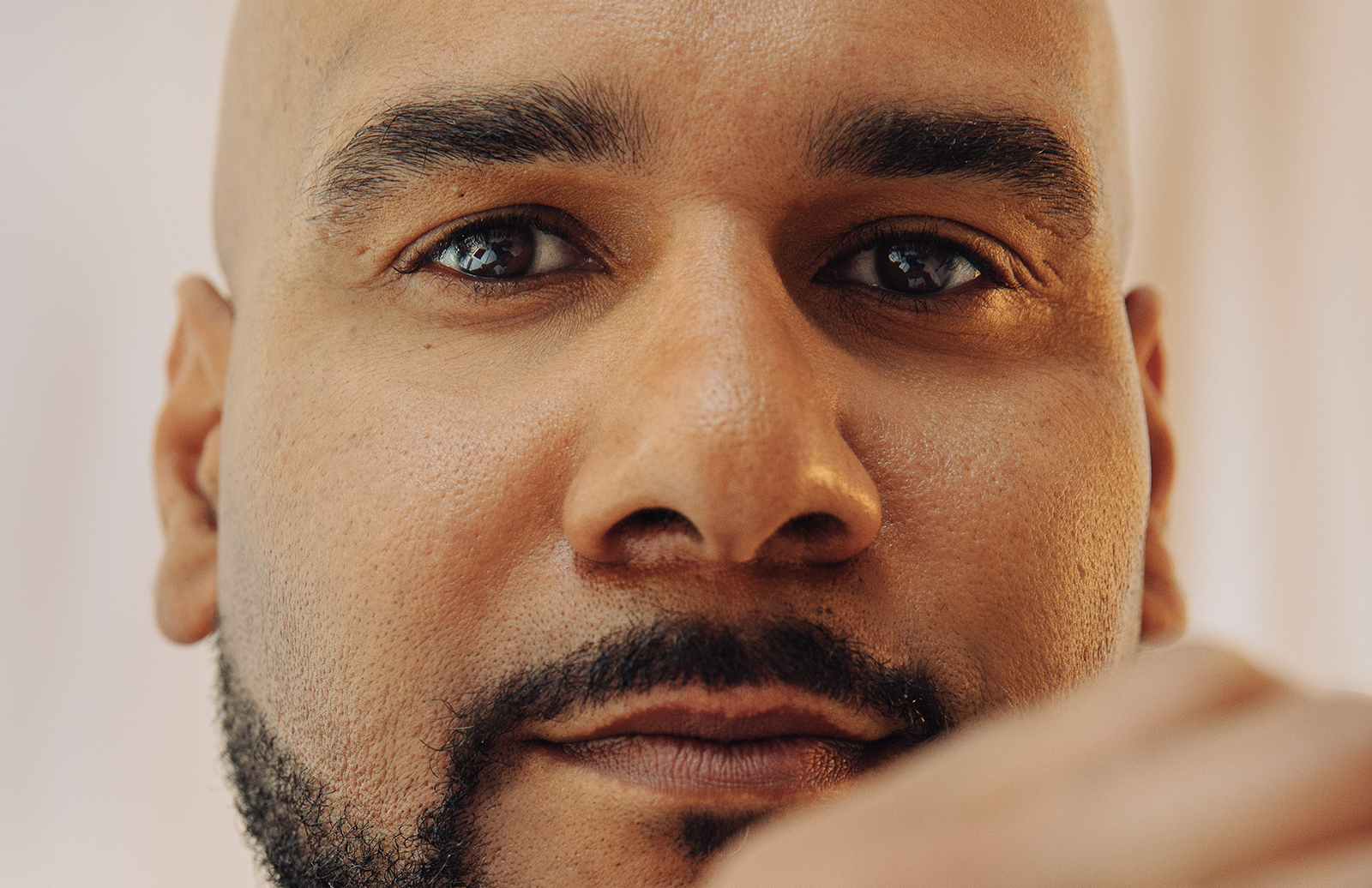
“We do a lot of sports documentaries. And on the side, I try to do something connected to activism.”
Vertical Social Club
A black-and-white illustration of American filmmaker and screenwriter Spike Lee peers over the shoulder of German journalist, photographer, and filmmaker Jermain Raffington in his office in Berlin.
As an early afternoon autumn sun temporarily brightens his space, Jermain settles into sharing his most recent activities with me.
“I’m back from two international productions that were quite strenuous,” he says, leaning back to adjust his dark baseball cap. “I’m slowly getting back to the Berlin fall. The weather changes so drastically with the light going away.”
Vertical Social Club (VSC), Jermain’s production company helmed with two business partners, is where he uses his experiences with storytelling, social media and advertising to share his love of sports. “We do a lot of sports documentaries. And on the side,” he adds, “I try to do something connected to activism.”
Recent activist projects include making three films for BERLIN GLOBAL–The Exhibition at the Humboldt Forum, a 4,000 square meter space that shows how the city and its people connect to the world. “The three topics are racism, gentrification and the representation of Black people in the media industry.”
Jermain mentions it was refreshing to conceptualize the three films. The venture allowed him to produce projects outside of the arena of sports. Another way for him to move people and affect change. The films are titled Entertain Berlin, Sorry for Something? and Representation Matters: Racism in the Entertainment Industry.
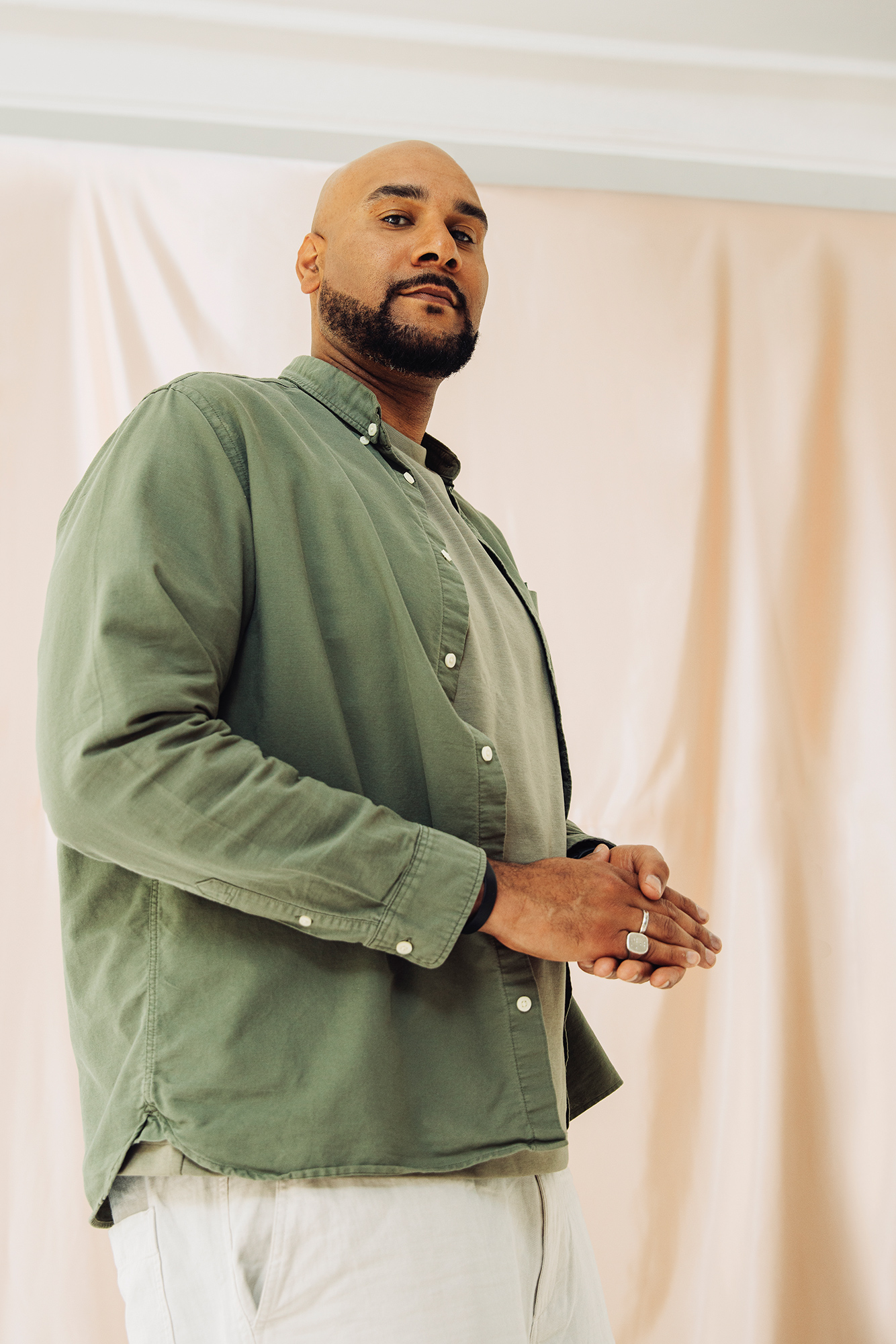
Racial Matters
On racism, Jermain acknowledges that it’s difficult for people of color to discuss it in Germany. Born to a German mother and a Jamaican father, Jermain grew up in Hamburg, the country’s largest port and commercial center. “Diversity for many major companies is still ‘how many women do we get on our board.’ Or they elect a diversity board comprising old white men. And then don’t understand where the problem lies.”
A March 2022 article on DW.com titled Racism in Germany is Part of Everyday Life declares that “… most Germans recognize that racism exists in their society, affecting not only minorities but everybody who lives here.” This finding is part of the National Racism and Discrimination Monitor (NaDiRa), the first of its kind for the country. With funding from the Federal Parliament, the NaDiRa researches the causes and the consequences of racism in Germany.
“It’s moving slowly,” Jermain surmises. “People lack the knowledge, per se, on racial matters. I think it’s definitely rooted in Germany’s past. And a recognition that whiteness is not equivalent to being German. That somebody with my skin complexion can also be German. That was the driving factor behind the Schwarz Rot Gold series.”
Schwarz Rot Gold is a series where Jermain traveled through Germany to speak to Black Germans who talked about their professional and personal histories. Guests included radio and
television presenter Hadnet Tesfai, symphony conductor Kevin John Edusei, and scholar and politician Dr. Sylvie Nantcha.
However, Jermain’s discovery of Marie Nejar and Theodor Wonja Michael, who grew up during Germany’s World War II Nazi Regime, altered how he sees himself.
“They made me understand my position in German society.”
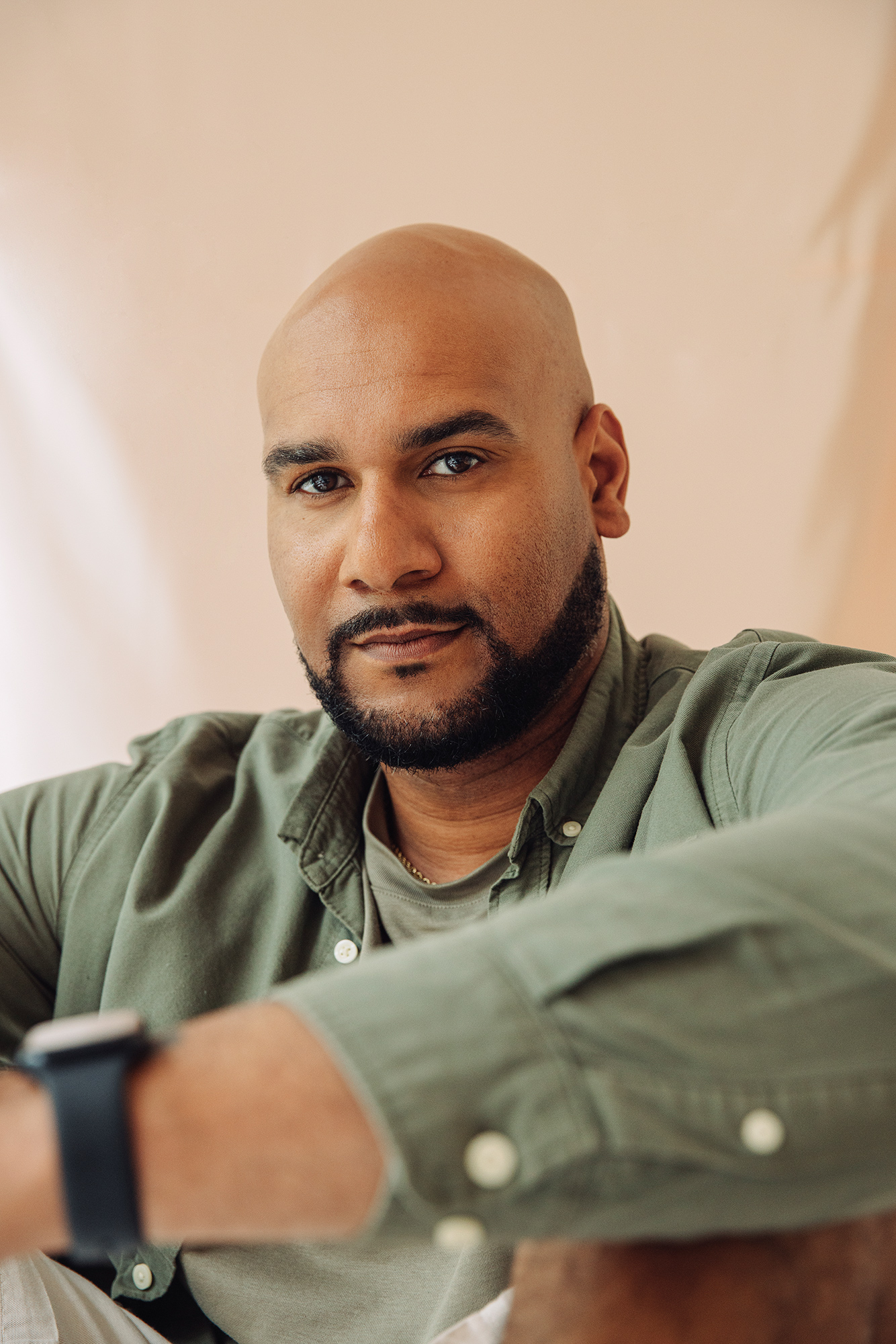
unaware of the country’s colonial past
Jermain discovered Theodor through his 2013 autobiography, Black German: An Afro-German Life in the Twentieth Century. Marie’s story came to Jermain through his relationship with ISD (Initiative Schwarzer Deutscher) or Initiative of Black People in English. A political community that offers support for Black people in Germany.
But the spark igniting Jermain’s desire to create a series like Schwarz Rot Gold was going to the United States in 2005 to play college basketball. Before this, his contact with the U.S. was through Jamaican family members living in New York City. “My role models back then were American athletes and musicians. But experiencing that African-Americans are different because of a different history was very eye-opening. It triggered me to look into what was here (in Germany) before me. When was black life present in media coverage?”
Jermain remembers Arabella Kiesbauer, an Austrian-born presenter, writer, and actress, who rose to public acclaim during the 1990s. With a career that began in the late 1980s in her native Austria, Kiesbauer moved to Germany in 1994 to host her daily talk show, Arabella. The show aired for ten years and made her one of the most successful television presenters of talk shows in Germany.
However, he states that Kiesbauer’s exposure to the German public was “still this exoticising of somebody who is Black who can speak German fluently.” He adds that it hasn’t minimized the surprise of non-black Germans interacting with him in his daily life. “To this day, people approach me and say, ‘Oh, your German is really good.’ Yeah, I’m German. I was born here. It should be known by now that Germany is also a country of immigrants.”
Jermain discloses that many are also unaware of the country’s colonial past. One which included territories in modern-day Tanzania, Burundi, Rwanda, Namibia, Cameroon, Togo, and Ghana. In Namibia alone, German military forces killed approximately 80,000 indigenous citizens. A genocide carried out between 1904 and 1907. Like other European countries, Germany’s interests in Africa and Asia were rooted in economics and a desire to be a world power.
“Through my work…” Jermain takes a breath. “Through finding my own Black German identity, I understand myself. But… I also help young Black German teenagers to understand themselves. And for white German society to learn more about its history. There’s hardly talk about the prequel of the concentration camps.”
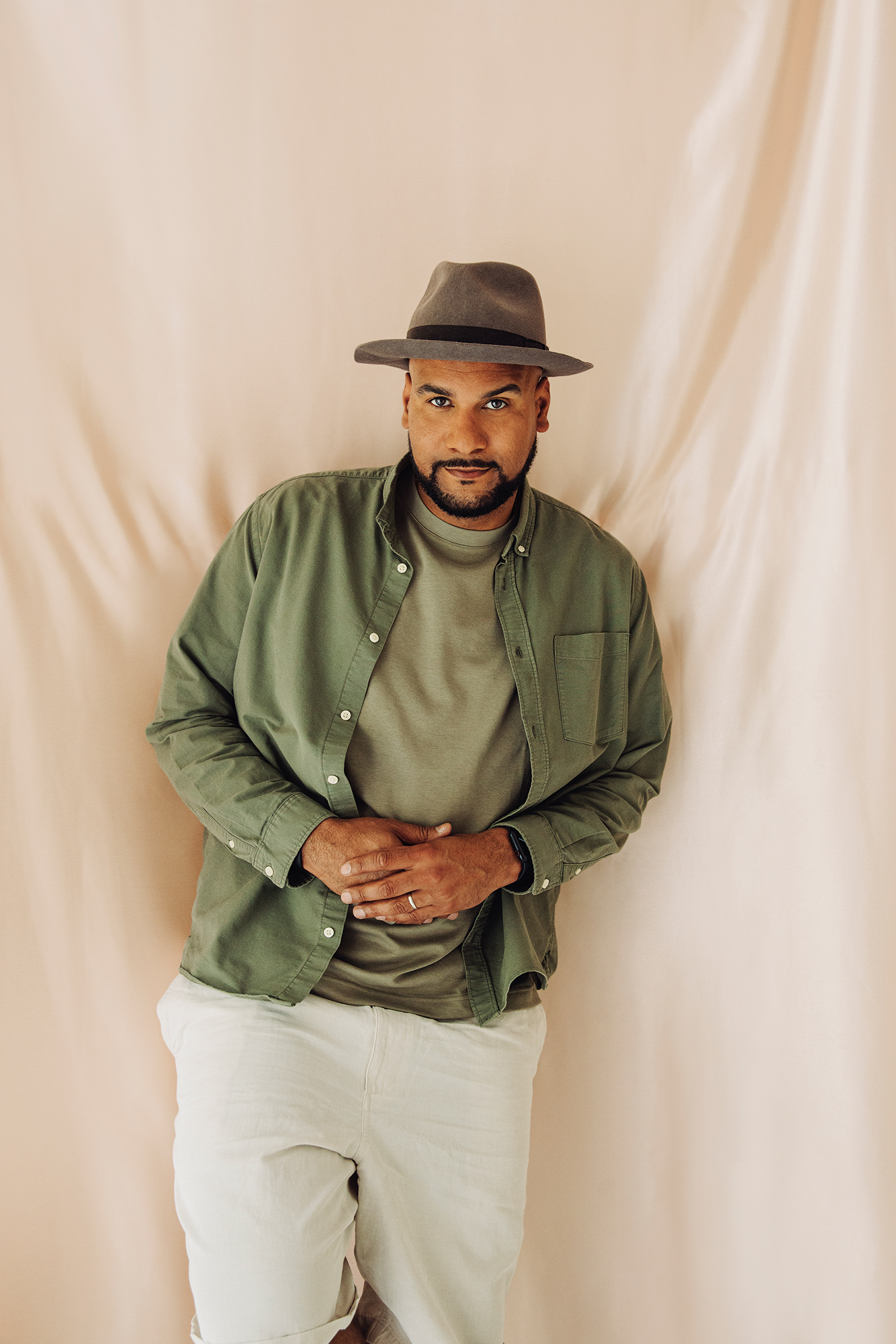
Storytelling as a filmmaker
Jermain’s commitment to storytelling is grounded in broadening the perceptions of Black citizens. Which includes careers that show the range and diversity of aspirations and interests. “Even though I, as a Black basketball player, fulfill a certain stereotype, it was important for me to find someone in classical music like Kevin John Edusei. Because that’s such a white space.”
Uncovering the histories of Black Germans gives him a greater sense of himself as an Afro-German. Thus, Jermain hopes to use his skills as a filmmaker to tell the stories of Blacks throughout Europe, Africa, and other parts of the world. Pausing, he shares his inaugural memories of seeing other Blacks in Europe.
“When I was younger, I was mind-blown by the normalcy of Black life present on the streets in London. Whether it was your bus driver, bank teller, or lawyer. You don’t see that in Germany in that way.”
In 2020, Jermain co-directed the documentary Made in Senegal with Mehdi Benhadj-Djilali and Peta Jenkin, about footballer Sadio Mané. Mané is a forward who’s played for the Bundesliga club Bayern Munich, the Senegal national team, and the Liverpool Football Club. Accompanying
Mané for two years with his film crew, Jermain captured moments that afforded him opportunities to get to know Mané on both a professional and a personal level.
Made in Senegal shows Mané using his successes as a footballer to enhance the lives of those in his hometown of Bambali.
Another burst of light engulfs Jermain before he resumes.
“They don’t have any electricity or running water. He returns to his place of birth to better things. He rebuilt the mosque. He’s heavily into the education of the youth. He always gives back.”
Two more documentaries produced by VSC are ONEFOOTBALL World Cup Strategy 2018 and Serge Gnabry – The Two Worlds of Modern Football. Serge Gnabry profiles the German player and his involvement with the global charity Common Goal, a pledge-based movement encouraging professional football players and coaches to pledge a minimum of one percent of their salaries to a collective fund supporting charities around the world.
The Serge Gnarby documentary shines a spotlight on the parts of a professional athlete’s life that go beyond the glitz and glamour. “Football opens the world to you,” Jermain remarks. “But it’s more than the fancy car and the luxury villa. If you go to streaming platforms, you have tons of player profiles where their stardom is glorified. I think it’s key to get the protagonist to open in a way where all that doesn’t matter.”
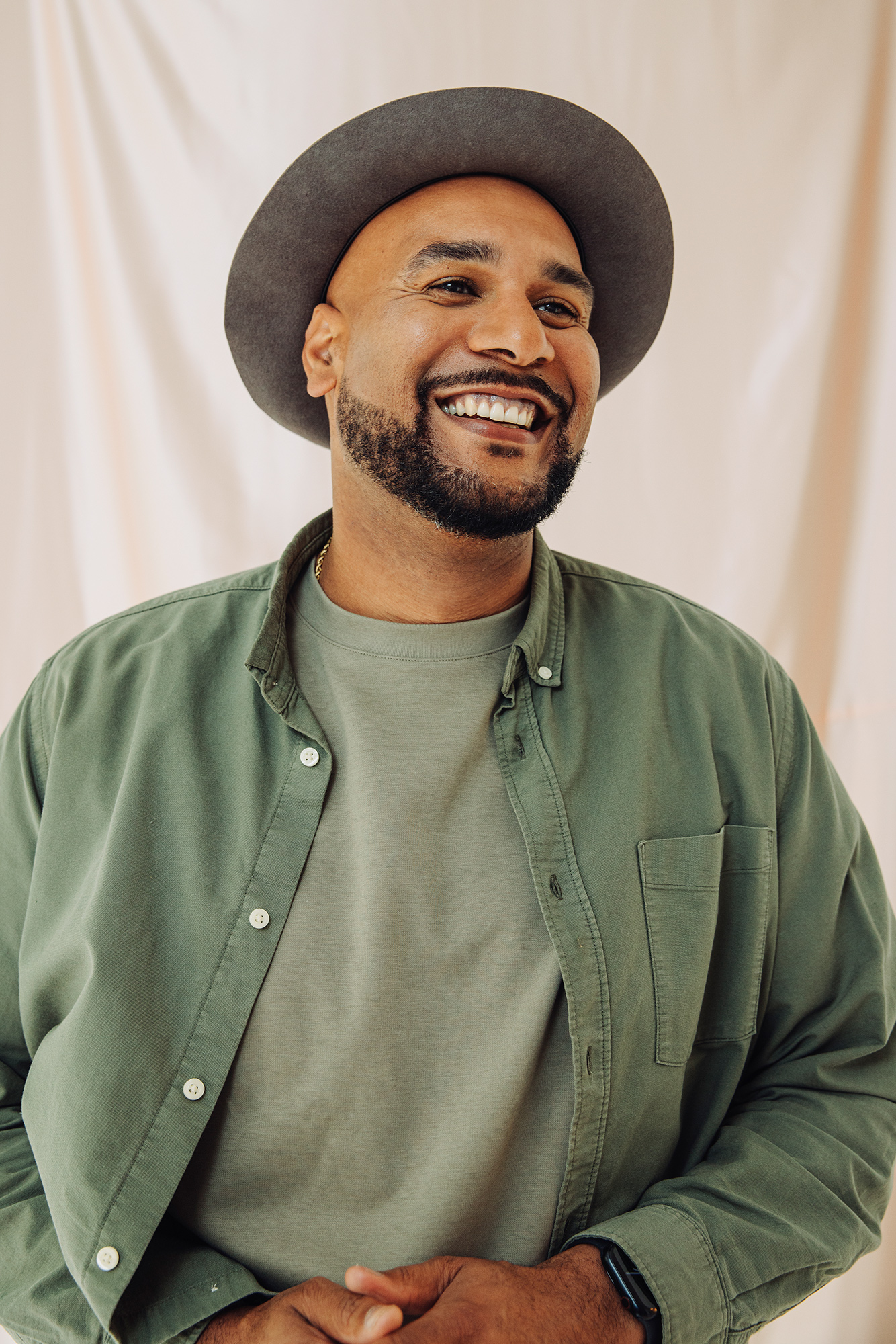
Real lives of real people
Jermain’s own career as a professional basketball player for seven years makes him the ideal person to document the lives of athletes.
His career kicked off in 2007 with the BV 99 Chemnitz club. But Jermain first found the sport during his youth in Hamburg. And through honing his skills with USC Freiburg, one of Germany’s largest basketball clubs, he made it to the country’s youth national team. This culminated in him moving to the U.S. to study at a college in Burlington, Iowa and playing collegiate ball. Jermain’s final professional season was with BG Göttingen for its 2013-14 season.
Chuckling, Jermain admits he isn’t a fanboy. “I like football. But I’m interested in the challenges people overcome to become the players they are. Because I know how much struggle is behind it. How much you have to give up. Whether it’s relationships or parts of your youth.”
Jermain’s portfolio site, says he “… focuses on the documentation of people within their natural environment.” This leads me to ask when his interests in photography, journalism and filmmaking began.
“I was always interested in media,” Jermain responds. “Even before basketball, I wanted to do radio. I’m super interested in people. If someone’s passionate about gardening, I can have a great conversation about gardening. Whether it’s my photography or my films, I love talking to interesting people and learning more about the world.”
After his basketball career, Jermain’s photography hobby advanced to accepting commissioned work for magazines. In due course, this positioned him to write for publications like VICE Magazine. He’s also hosted, produced and moderated for shows like VICE Reports and VICE Sports on RTL II.
Because of his passion for documentary filmmaking, Jermain says he currently isn’t interested in scripted content or feature films. “I never say never, but not now. It’s a different style of working. And if you want to do it properly, it requires more funds.” Smiling, Jermain adds he enjoys the spontaneity of documentary filmmaking and the possibility of finding diamonds in the rough.
Jermain and his team are currently on two projects set to wrap by the end of November 2022. My conversation with him concludes with Jermain reiterating his joy in documentary filmmaking. How he enjoys capturing the lives of interesting individuals.
“I like the real lives of real people because it’s not scripted. It’s the exciting part of my job. On the one side, I’m in Milan shooting something about soccer. And then for the next project, I’m in Cairo, Egypt, doing a basketball project in front of the pyramids. It’s these moments you also take in for yourself. With every project, I grow as a person. You observe and you learn.”
photography MAÏSCHA SOUAGA | @maischa_s | maischasouaga.com Concept + Production: GURLZ WITH CURLZ | @_gurlzwithcurlz_ | gurlzwithcurlz.de Created for their special edition "DUDEZ WITH ROOTS - Conscious conversations"




